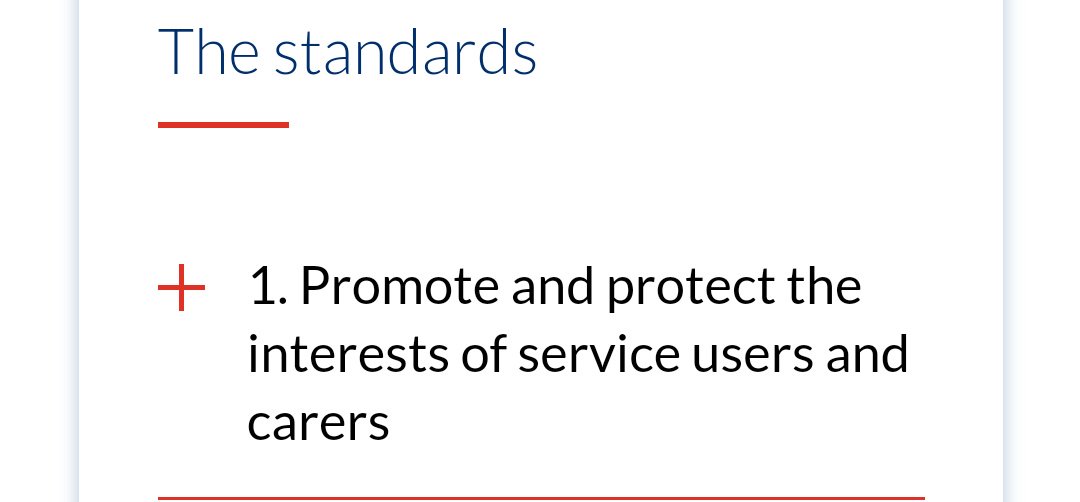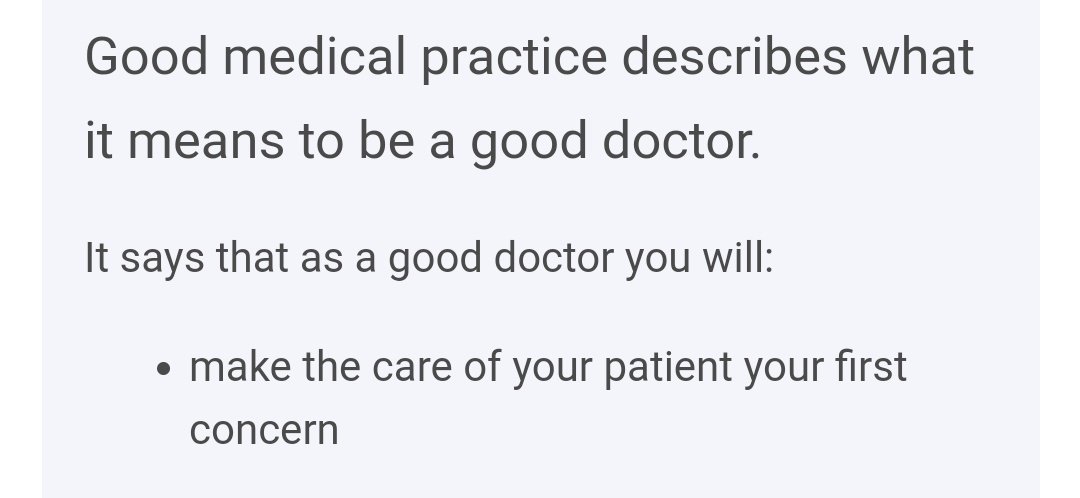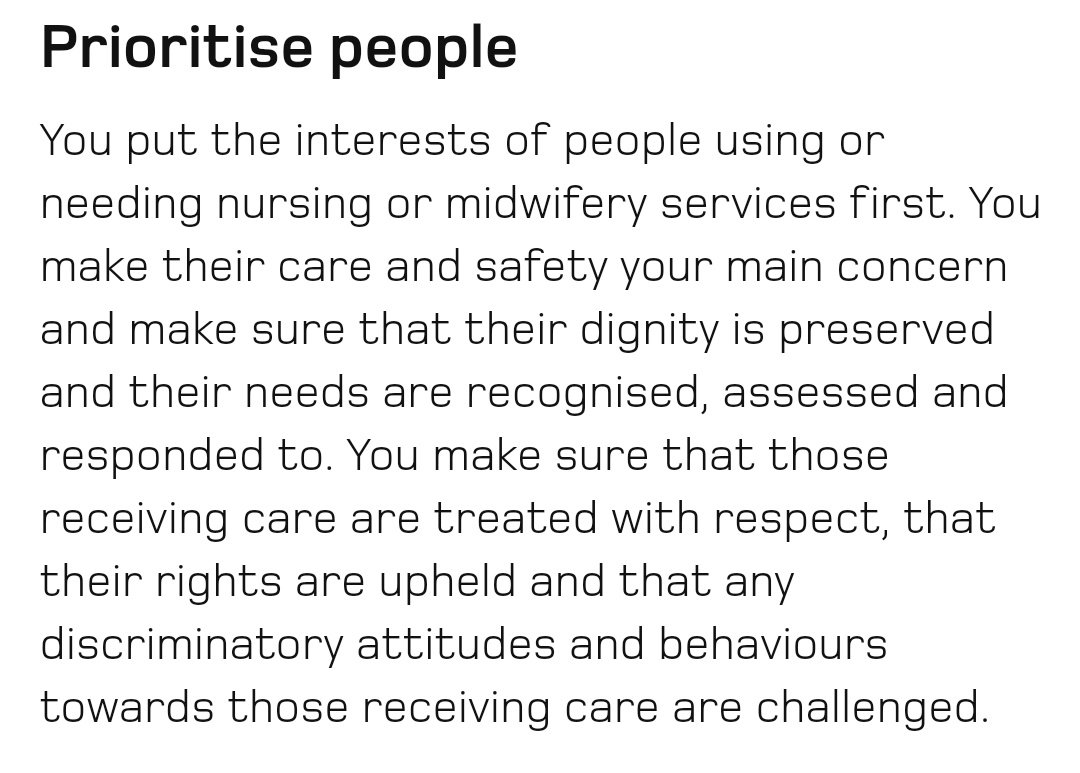
1/
The abuse shown in #Panorama is not shocking or surprising to those of us with experience of contemporary #InstitutionalAbuse in mental health services
Sadly, it resonates with ongoing interventions elsewhere in the UK
🧵:Some actions all MH professionals can take right now
The abuse shown in #Panorama is not shocking or surprising to those of us with experience of contemporary #InstitutionalAbuse in mental health services
Sadly, it resonates with ongoing interventions elsewhere in the UK
🧵:Some actions all MH professionals can take right now
2/
Other victims have been consistently describing similar concerns in other areas. We must acknowledge this, and reflect on what it takes for victims' accounts to be taken seriously and acted on
We need to decide whether we are happy continuing to rely on undercover reporters
Other victims have been consistently describing similar concerns in other areas. We must acknowledge this, and reflect on what it takes for victims' accounts to be taken seriously and acted on
We need to decide whether we are happy continuing to rely on undercover reporters
3/
In our own services, we can't afford to just say, "This couldn't happen here"
Instead we must ask, "What measures do we need to prevent this happening here?"
And, "Would we know how to protect victims if we become aware of abuse either locally or in another area?"
In our own services, we can't afford to just say, "This couldn't happen here"
Instead we must ask, "What measures do we need to prevent this happening here?"
And, "Would we know how to protect victims if we become aware of abuse either locally or in another area?"
4/
We need to be proud of and promote high quality mental health services
These are separate conversation: the existence of abusive services does not negate high quality, safe MH services, and the existence of high quality, safe MH services does not negate the need to stop abuse
We need to be proud of and promote high quality mental health services
These are separate conversation: the existence of abusive services does not negate high quality, safe MH services, and the existence of high quality, safe MH services does not negate the need to stop abuse
5/
Maintaining positive service cultures free from abuse needs constant work and renewal
We need to engage with all existing measures: PVG/DBS checks, ASP/safeguarding training, external inspection. They may feel burdensome, but they have a purpose.
There is more we need to do
Maintaining positive service cultures free from abuse needs constant work and renewal
We need to engage with all existing measures: PVG/DBS checks, ASP/safeguarding training, external inspection. They may feel burdensome, but they have a purpose.
There is more we need to do
6/
We need to mitigate against normalised deviance and groupthink
Normalised deviance = routine deviation from good practice standards, which becomes so routine it isn't noticed or challenged
Groupthink = prioritising group cohesion over responding openly to concerns
We need to mitigate against normalised deviance and groupthink
Normalised deviance = routine deviation from good practice standards, which becomes so routine it isn't noticed or challenged
Groupthink = prioritising group cohesion over responding openly to concerns
7/
Measures to mitigate against normalised deviance and groupthink:
Externally facilitated reflective practice
Membership of national quality network
Other external networking: conferences, peer groups, mentoring
Measures to mitigate against normalised deviance and groupthink:
Externally facilitated reflective practice
Membership of national quality network
Other external networking: conferences, peer groups, mentoring
8/
For prevention of and response to abuse, knowledge and skills are vital. Given the prevalence and risk in institutional settings (including community and acute hospitals), this should be a larger part of training curricula. Until then, we need to study
For prevention of and response to abuse, knowledge and skills are vital. Given the prevalence and risk in institutional settings (including community and acute hospitals), this should be a larger part of training curricula. Until then, we need to study
9/
ASP/safeguarding training tends to emphasise signs in victims. The biggest warning sign that a patient is being abused is them telling you about it
We need to equip ourselves with knowledge of perpetrator characteristics and warning flags, at individual & institutional levels
ASP/safeguarding training tends to emphasise signs in victims. The biggest warning sign that a patient is being abused is them telling you about it
We need to equip ourselves with knowledge of perpetrator characteristics and warning flags, at individual & institutional levels
10/
Knowledge of perpetrator or institutional characteristics allows us to recognise and challenge without waiting for victims' disclosure, and to recognise common patterns when a victim does disclose
Perpetrators may abuse patients in front of others, or may overstep boundaries
Knowledge of perpetrator or institutional characteristics allows us to recognise and challenge without waiting for victims' disclosure, and to recognise common patterns when a victim does disclose
Perpetrators may abuse patients in front of others, or may overstep boundaries
11/
Problematic teams may routinely use derogatory language about patients, may have normalised poor practices such as exclusion or victim-blaming, and may ignore or defend overtly abusive colleagues
Problematic teams may routinely use derogatory language about patients, may have normalised poor practices such as exclusion or victim-blaming, and may ignore or defend overtly abusive colleagues
12/
Problematic institutions may ignore victims' complaints, fail to respond to or withhold information from regulators and inspectors, and prioritise monitoring victims' social media over engaging with Independent Reviews
MH professionals need to know these signs and patterns
Problematic institutions may ignore victims' complaints, fail to respond to or withhold information from regulators and inspectors, and prioritise monitoring victims' social media over engaging with Independent Reviews
MH professionals need to know these signs and patterns
13/
We all need to acknowledge that there are patients in our local services who have experienced #InstitutionalAbuse in health or social care
They may not feel safe to disclose details, but you will have met them
We must plan trauma-informed approaches to meet their needs
We all need to acknowledge that there are patients in our local services who have experienced #InstitutionalAbuse in health or social care
They may not feel safe to disclose details, but you will have met them
We must plan trauma-informed approaches to meet their needs
14/
These are just some thoughts on actions individual MH professionals can take, in response to people saying "What can we do?" It doesn't consider the institutional actions which are needed to develop systems of adult and child protection
Summary:
1 Study
2 Network externally
These are just some thoughts on actions individual MH professionals can take, in response to people saying "What can we do?" It doesn't consider the institutional actions which are needed to develop systems of adult and child protection
Summary:
1 Study
2 Network externally
15/
Books:
Abuse of the doctor-patient relationship 2010 Eds Subotsky,Bewley,Crowe
Institutional abuse: perspectives across the life course 1999 Eds Manthorpe,Penhale,Stanley
Institutional corruption: a study in applied philosophy 2017 Miller
Epistemic Injustice 2007 Fricker
Books:
Abuse of the doctor-patient relationship 2010 Eds Subotsky,Bewley,Crowe
Institutional abuse: perspectives across the life course 1999 Eds Manthorpe,Penhale,Stanley
Institutional corruption: a study in applied philosophy 2017 Miller
Epistemic Injustice 2007 Fricker
16/
DOI: I have contributed to a book chapter on this topic, currently in press for publication 2023 - but as with much academic publishing I won't get any money from book sales, it was written as a service to the profession in the hope of improving standards and quality of care
DOI: I have contributed to a book chapter on this topic, currently in press for publication 2023 - but as with much academic publishing I won't get any money from book sales, it was written as a service to the profession in the hope of improving standards and quality of care
17/
If I remember, I will link the book into this thread when it's published, but we're not yet at copy editing so it will be a while.
The first action I'd recommend is to start by reading the CQC report on closed cultures, which lists warning signs well
cqc.org.uk/guidance-provi…
If I remember, I will link the book into this thread when it's published, but we're not yet at copy editing so it will be a while.
The first action I'd recommend is to start by reading the CQC report on closed cultures, which lists warning signs well
cqc.org.uk/guidance-provi…
18/18
...And if you think others might find this helpful, please share with your followers by retweeting the tweet at the top of the thread. We have far to go but it is imperative that we take action
...And if you think others might find this helpful, please share with your followers by retweeting the tweet at the top of the thread. We have far to go but it is imperative that we take action
https://twitter.com/AlexBThomson/status/1576184067485491203?t=Y1yLObAsocTWGs8KKDpa3A&s=19
• • •
Missing some Tweet in this thread? You can try to
force a refresh








